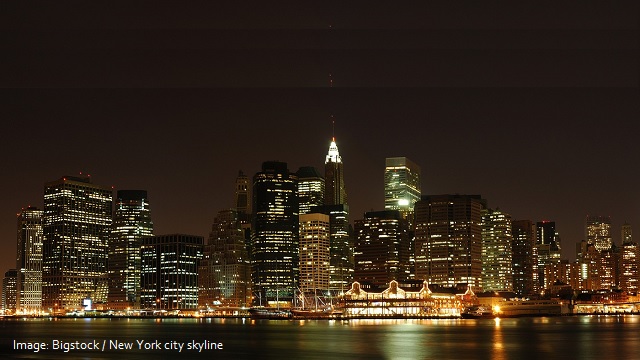In Praise of Men by Kimberly Ells

I went to the Commission on the Status of Women at the United Nations this spring. Man-hating is never in short supply there and this year it was in especially fine form. I went to numerous presentations where the call to action was to “dismantle the patriarchy,” “eradicate the patriarchy,” or “smash the patriarchy.”
I began to wonder if anyone actually knew what the patriarchy was, so I decided to ask.
After one event I approached the moderator, thanked her, and asked what she thought a helpful definition of “the patriarchy” would be. She fumbled excessively and finally said, “Well, it’s the system in which we live. It is everything made by men, for men.” I pivoted over to a panellist, the Archbishop of the Church of Sweden, and asked her the same question. After a great deal of stammering, she produced a similar answer.
So, to abolish the patriarchy, everything made by men has to go. It sounds almost Maoist in the level of destruction it would take to actually carry out the job of smashing the patriarchy: Demolish everything built, conceived, or forged by men, and build it all back better. The hubris of the idea is overwhelming.
I walked back to my hotel. I strode across the marble floor in the lobby and ascended 34 stories of steel and glass and wiring. I looked out the window at the fantastic landscape of New York City buildings jutting up in angular beauty below me. I thought about all the men who had built nearly everything within my stunning view, and the building in which I stood. I thought of all the digging and drilling and hauling and pounding and pouring and sweating that made that bustling, beautiful city possible. And I was grateful for the work of men.
Why is it not good enough that mostly men built these buildings? Why does something need to be made by women for it to be worthy of wonder and gratitude? I never walk through a sparkling hotel lobby and think, “Was this made by a man? Slimy devil built it just to spite women. It ought to be ripped down!”
And do men really make things only for the benefit of other men? The hotel I was staying in was bursting with women from every continent of the world. And they all seemed pretty pleased to have a place to stay. And running water. And lights. And I’m guessing the soft carpets under their feet were laid by men.
A friend I was rooming with at the hotel has a daughter who is a budding architect and just signed a contract to design buildings all over the world. Women, of course, can be architects and they can be great ones. But when this woman’s daughter goes to draft plans for a building, will she plan to hang “Women Only” signs everywhere and refuse to put in bathrooms for men? Will she build it with the intent that it will be built by women, for women?
In frontier times, did a man cut trees, shape logs, and stack them together to make a cabin so that only he could use it? More often than not, a man worked for the good of his family. He wanted to build a house so his wife and children could live in it and not die. Today, a man may not haul logs, but many a good man hauls himself to the office or the job site or the classroom or the field and wears out his life working for the benefit of others.
Yes, the man gets to enjoy the fruits of his labours too, but a good man (and I realize there are bad men) works and builds and dreams and sweats so that he can provide useful things to the people he loves and to people at large. Women do this, too. But most women opt out of hard labour while men tend to opt in. Therefore, much of what is built in the world is built by men. This is not evil. And it’s not a manifestation of “women’s oppression” as my UN comrades often insist. The work of men actually helps women. A lot.
Most of the women at the Commission on the Status of Women bristle at any mention of motherhood and resent the time it takes to raise a child. But is the crafting of a soul any less necessary or less grand than the crafting of a building? Cardinal Joseph Mindszenty once wrote of mothers, “She cannot claim the honour of having built Notre Dame Cathedral. She need not. She has built something more magnificent than any cathedral—a dwelling for an immortal soul.” A woman can certainly build buildings, but perhaps there are even more important things she can do.
We should ask, what is more important—the house, or the child living and breathing and playing and sleeping in the house? A house has no meaning without someone to live in it. The maker of the house is not more honourable than those who work out their lives inside it. Both are noble. And perhaps the builder of the building and the one who gives the building purpose can glory in the contributions of the other.
I was treading the corridors of the UN for the rest of the week (most likely built by dreaded men) and marvelled at the bombastically joyous lights in Times Square (probably made mostly by awful men) and walked in the shade of trees (probably planted by selfish men) and gazed out my window every night at the marvellous mayhem of steel and lights before me. And I was thankful—thankful for men.
I still am.
AUTHOR
KIMBERLY ELLS
Kimberly Ells is the author of The Invincible Family. Follow her at Invincible Family Substack.


Leave a Reply
Want to join the discussion?Feel free to contribute!